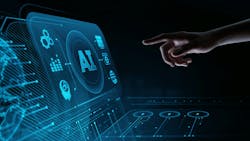AI Innovations in Plumbing Services
Artificial Intelligence (AI) is revolutionizing various industries, and plumbing is no exception. While AI has transformed sectors like manufacturing and healthcare, it’s now making its way into plumbing, helping service providers enhance efficiency, safety, and customer satisfaction. From detecting leaks to streamlining customer service, AI is reshaping the plumbing industry, offering solutions that are smarter and more effective than ever before.
What is Artificial Intelligence?
Artificial Intelligence refers to technology that enables machines to perform tasks requiring human intelligence, such as learning from data, recognizing patterns, and making decisions. In plumbing, AI can automate repetitive tasks, improve processes, and solve problems that typically require human input. This allows plumbing companies to operate more efficiently, saving time and resources while providing better service.
Many industries fear that AI might eventually replace human workers. However, experts believe that while AI can perform certain tasks, human intelligence, creativity, and decision-making remain irreplaceable.
Leak Detection
One of the most innovative applications of AI in plumbing is leak detection. Companies like United Plumbing use AI algorithms to monitor water flow continuously and detect leaks that may not be visible to the human eye.
“This technology not only identifies hard-to-find leaks but also provides actionable insights to prevent major water damage,” says Bekhruz Nagzibekov, founder of United HVAC Plumbing & Electric. “By catching these issues early, homeowners can save time, money, and avoid unnecessary stress.”
In addition, AI-powered smart assistants can monitor water pressure in pipes and automatically shut off the water supply in the event of a major leak. This combination of automation and precision showcases how AI is making plumbing services more reliable and efficient.
Customer Service
AI is also transforming customer service in the plumbing industry. By integrating AI tools like chatbots and virtual assistants, plumbing companies can provide faster and more efficient service to their customers. Let’s take a look at some of Bekhruz's specific use cases that have performed well in his company.
Chatbots for Immediate Customer Response:
● 24/7 Availability: Chatbots can handle customer requests at any time of day. Whether it's a leaking pipe or a clogged drain, customers can provide details about their issue, and the bot will log all necessary information for the plumber.
● FAQs: Chatbots can answer frequently asked questions, such as pricing, technician availability, and estimated arrival times.
● Initial Diagnosis: Chatbots can ask relevant questions to help diagnose the issue before a plumber arrives, allowing them to come prepared with the right tools and materials.
Virtual Assistants in Call Centers:
● After-Hours Calls: Virtual assistants can take customer calls outside of business hours, providing basic advice and scheduling appointments for the next day.
● Data Collection: These assistants can log and analyze call data, allowing companies to track customer interactions and service trends over time.
● Problem Recognition: Using Natural Language Processing (NLP), virtual assistants can recognize specific customer issues, such as water leaks or clogged drains, and prioritize service requests accordingly.
“When I started my company, I personally handled both dispatching and managing the call center myself, so I understand the immense value that AI brings to these roles,” says Nagzibekov.
Training and Onboarding
In addition to using AI to provide services to customers, it can be used to improve internal operational systems, such as training and onboarding of employees.
“During the year, United Plumbing has been actively running and developing an employee school. The virtual school is a platform where employees can learn the necessary skills and knowledge online,” Nagzibekov says.
The courses are structured in modules that cover various aspects of plumbing, from basic principles to complex technical solutions. Each employee is given the opportunity to learn at their own pace, and AI systems make learning personalized.
Virtual assistants play a key role in the learning process, helping at every stage, from explaining complex topics to providing additional materials. They are able to interact with employees via chat, or video, making the learning process more interactive and accessible.
“I want my company to be a place where employees can learn, develop and realize their ambitions, therefore from the first days of employment we set the appropriate pace,” says Bekhruz.
Special attention is paid to the onboarding process for new employees. A virtual assistant automatically guides them through all stages, from familiarization with corporate standards to training in specific skills required.
An important part of onboarding are interactive tasks and simulations that allow employees to immediately apply theoretical knowledge in practice, which significantly speeds up the process and increases their readiness to perform in the field. Virtual assistants not only help new employees get acclimated, but also motivate them to continue learning by tracking their progress and providing positive feedback on their achievements.
Chatbots and smart emailing serve as additional support and motivation tools. There are many benefits to implementing AI in the educational process. Automating onboarding and training processes reduces the workload on trainers and supervisors, which leads to a significant reduction in the cost of training new employees. As a result, the company gets more skilled and motivated employees ready to work effectively in the field, which ultimately improves the overall quality of services provided.
A New Era
The integration of AI into the plumbing industry marks a significant step forward, transforming plumbers from traditional craftsmen to tech-savvy professionals leading innovation in their field. AI enhances efficiency, accuracy, and customer satisfaction, making plumbing services more reliable and cost-effective.
“I believe AI isn’t just a tool,” shares Nagzibekov, “It’s a trusted partner, helping create a world where every drop of water is valued and every service reflects the highest standards of innovation and care."
